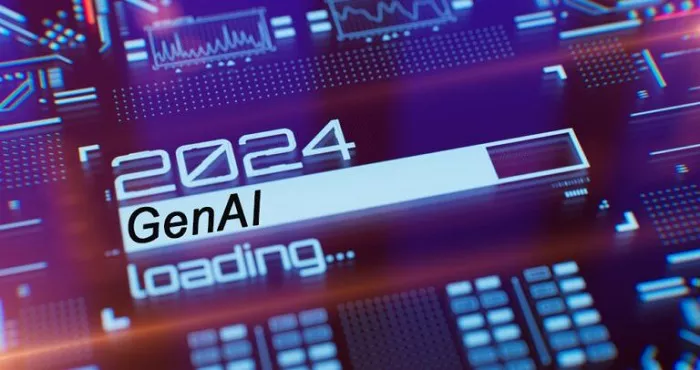China-based inventors are spearheading the filing of generative artificial intelligence (GenAI) patents, significantly outpacing their counterparts in the US, Republic of Korea, Japan, and India, which round out the top five locations. This information comes from the latest “WIPO Patent Landscape Report on Generative AI.”
The report documents an impressive 54,000 GenAI inventions over the past decade, with more than 25% emerging in the last year alone. GenAI, a technology that enables the creation of content such as text, images, music, and computer code, is driving advancements in various industrial and consumer products, including popular chatbots like ChatGPT, Google Gemini, and Baidu’s ERNIE.
From 2014 to 2023, China produced over 38,000 GenAI inventions, six times more than the second-place United States. India, ranking fifth, saw the highest average annual growth rate among the top five leaders at 56%. The report highlights GenAI’s widespread impact across industries, including life sciences, manufacturing, transportation, security, and telecommunications.
“GenAI has emerged as a game-changing technology with the potential to transform the way we work, live, and play. By analyzing patenting trends and data, WIPO hopes to provide a better understanding of where this fast-evolving technology is being developed and where it is headed. This can help policymakers shape the development of GenAI for our common benefit and ensure that we continue to put the human being at the center of our innovation and creative ecosystems. We are confident that the report will empower innovators, researchers, and others to navigate the rapidly evolving generative AI landscape and its impact on the world,” said WIPO Director General Daren Tang.
Key Findings:
Patent and Publication Surge: Between 2014 and 2023, 54,000 GenAI-related inventions (patent families) were filed, and more than 75,000 scientific publications were published. The growth is rapid, with GenAI patents increasing eightfold since 2017.
Significant Growth in 2023: Over 25% of all GenAI patents globally were published in 2023 alone, alongside 45% of all GenAI scientific papers.
GenAI’s Share in AI Patents: GenAI patents currently represent only 6% of all AI patents globally.
Top GenAI Patent Applicants: Leading the charge are Tencent (2,074 inventions), Ping An Insurance (1,564 inventions), Baidu (1,234 inventions), Chinese Academy of Sciences (607), IBM (601), Alibaba Group (571), Samsung Electronics (468), Alphabet (443), ByteDance (418), and Microsoft (377).
Top Inventor Locations: The leading countries are China (38,210 inventions), US (6,276 inventions), Republic of Korea (4,155 inventions), Japan (3,409), and India (1,350).
Dominant Data Types: Image and video data dominate GenAI patents (17,996 inventions), followed by text (13,494 inventions) and speech/music (13,480 inventions). Patents using molecule, gene, and protein-based data are rapidly growing (1,494 inventions since 2014) with a 78% average annual growth over the past five years.
Sectoral Spread: GenAI patents span across diverse sectors, including life sciences (5,346 inventions), document management and publishing (4,976 inventions), business solutions, industry and manufacturing, transportation, security, and telecommunications, each with over 2,000 inventions.
Future Implications of GenAI:
Pharmaceuticals: GenAI can expedite drug development by designing new molecules.
Automation: It can automate tasks in document management and publishing.
Retail and Customer Service: Increasing use in retail assistance systems and customer service chatbots.
Product Design: Enables new product design and optimization, including in public transportation systems and autonomous driving.
GenAI is set to transform various industries, promising innovative solutions and efficiencies that will shape the future of technology and its applications worldwide.
You Might Be Interested In:


























